Other
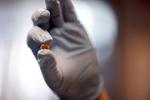
“”Soft robots,” medical devices and implants, and next-generation drug delivery methods could soon be guided with magnetism — thanks to a metal-free magnetic gel developed by researchers at the University of Michigan and the Max Planck Institute for Intelligent Systems in …

“Rather than being solely detrimental, cracks in the positive electrode of lithium-ion batteries reduce battery charge time, research done at the University of Michigan shows. This runs counter to the view of many electric vehicle manufacturers, who try to minimize …
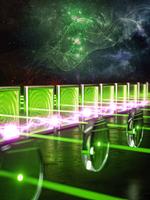
“The “spooky action at a distance” that once unnerved Einstein may be on its way to being as pedestrian as the gyroscopes that currently measure acceleration in smartphones. Quantum entanglement significantly improves the precision of sensors that can be used …
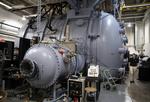
“It was believed that running more propellant through a Hall thruster would wreck its efficiency, but new experiments suggest they might power a crewed mission to Mars. It was believed that Hall thrusters, an efficient kind of electric propulsion widely …
News Shift to ultraviolet-driven chemistry in planet-forming disks marks beginning of late-stage planet formation

“The chemistry of planet formation has fascinated researchers for decades because the chemical reservoir in protoplanetary discs—the dust and gas from which planets form—directly impacts planet composition and potential for life. New research from the University of Michigan …

“PVC, or polyvinyl chloride, is one of the most produced plastics in the United States and the third highest by volume in the world. PVC makes up a vast amount of plastics we use on a daily basis. Much of …

“New technique could enable processing speeds a million to a billion times faster than today’s computers and spur progress in many-body physics The key to maximizing traditional or quantum computing speeds lies in our ability to understand how electrons …

“A new nanophotonic material has broken records for high-temperature stability, potentially ushering in more efficient electricity production and opening a variety of new possibilities in the control and conversion of thermal radiation. Developed by a University of Michigan-led team of …
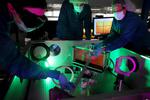
“The laser that will be the most powerful in the United States is preparing to send its first pulses into an experimental target at the University of Michigan. Funded by the National Science Foundation, it will be a destination for …
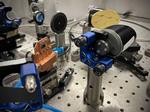
“Quantum materials emit light as though it were only a positive pulse, rather than a positive-negative oscillation. A laser pulse that sidesteps the inherent symmetry of light waves could manipulate quantum information, potentially bringing us closer to room temperature quantum …

